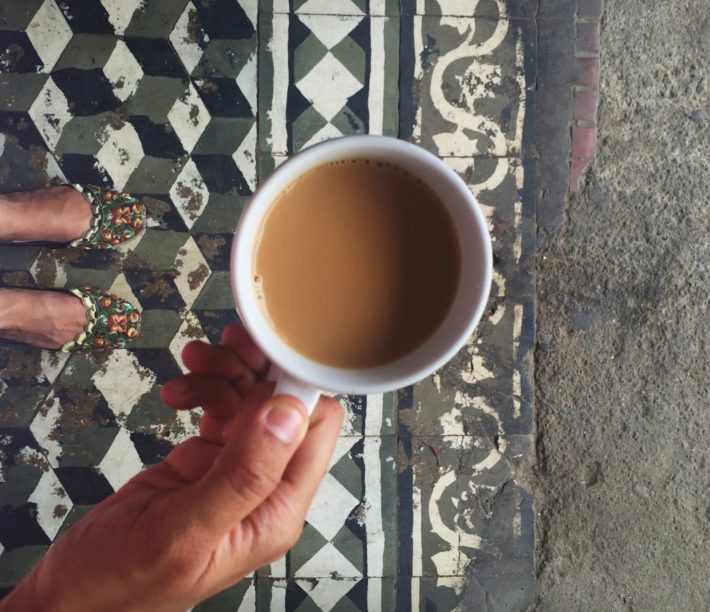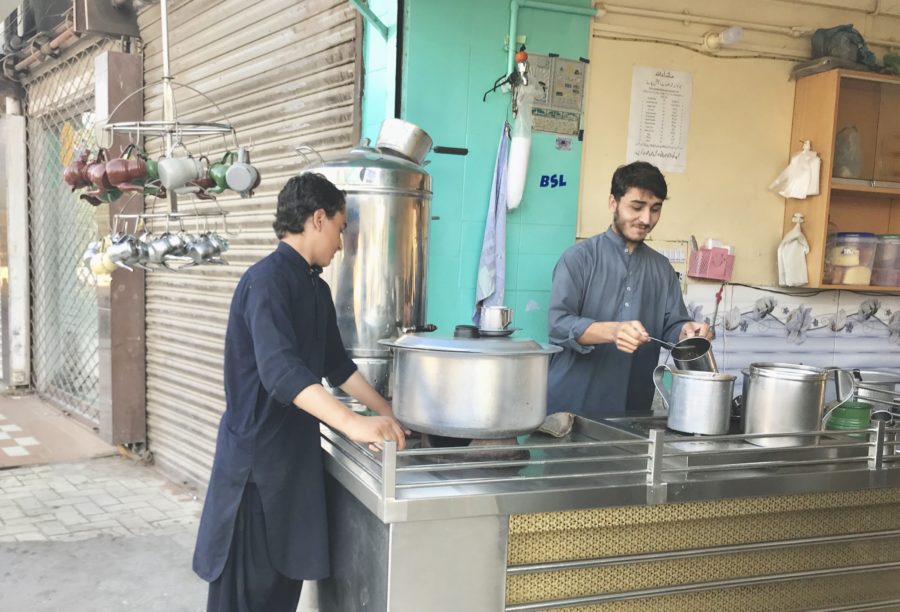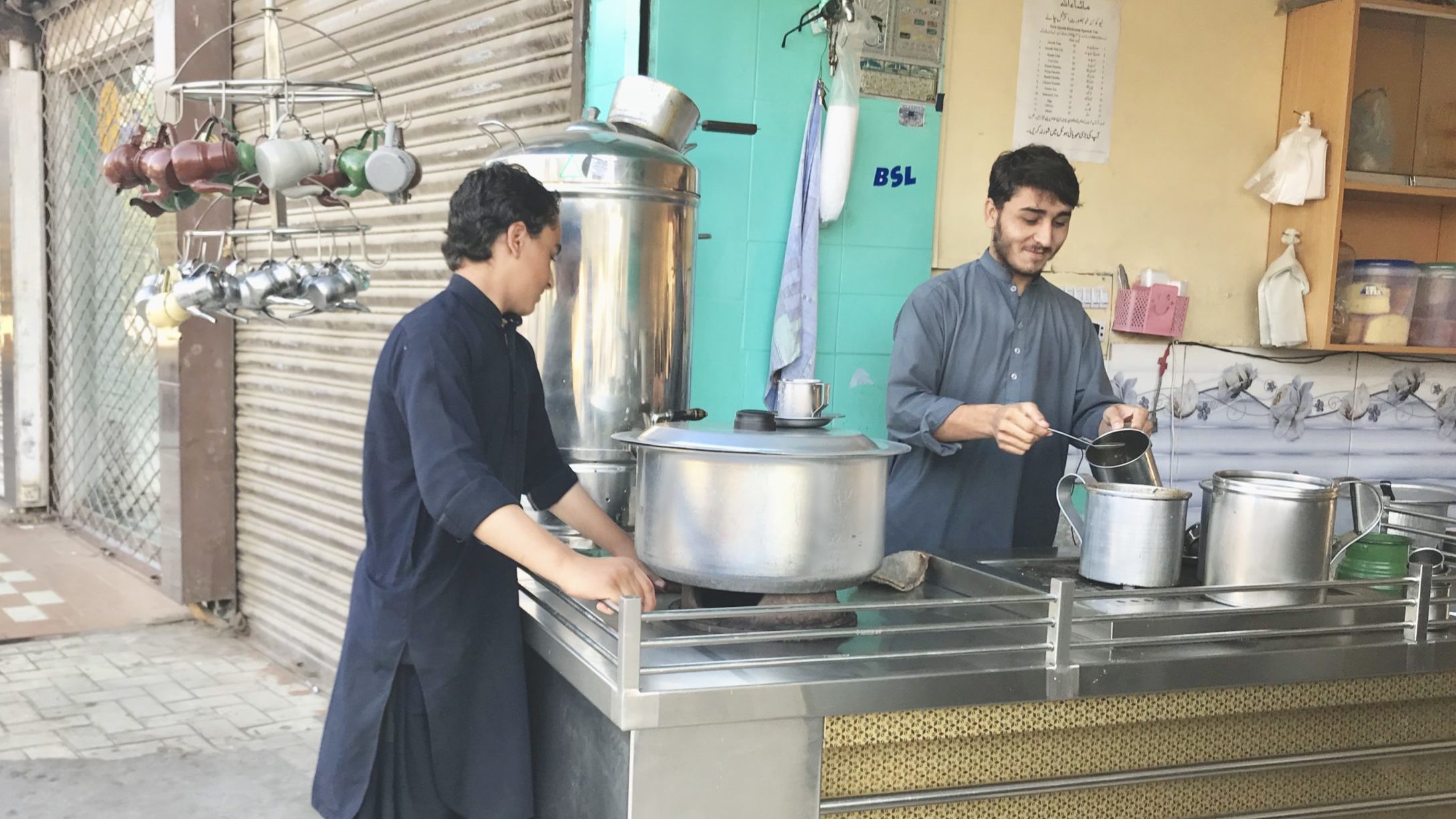Dec 24, 2018
Karachi, Pakistan
The man-who-sells-birds-on-the-corner-of-the-street and I had an argument. I watched him from the small balcony in Bari mumi’s apartment where she hangs clothes to dry. He would approach people in cars stopped at the traffic light and ask them to buy a bird. Many people here are against the caging of birds, so they would pay him to release a bird. He would, but then he would catch it and put it back in the cage as soon as they left. There were approximately 50 parrots in his small cage, which was tied shut with worn rope. After I saw him repeat this process a few times, I went down and confronted him. He told me I didn’t look like I was from here, and asked me what gave me the right to meddle in his business. I threatened to call the police on him for illegally setting up “shop” in the middle of the street. Eventually, he released all of the birds, and I bought him a cup of tea as a way to resolve the conflict.
I spent most of the morning peeking out through that same balcony to make sure he didn’t come back. My cousin kept telling me that this was all pointless, he probably just relocated to another area.
I lived in Pakistan until I was three, and since then I have visited at least once every year. Right now, I’m staying in my eldest uncle’s house, but I divide my time amongst all five of my uncles.
Between 2 p.m. and 4 p.m., everyone gets sleepy in Karachi. It’s the post-lunch lull and while some people take a nap during this break, others refuel with chai. There are tea shops, chai wallahs, on every street corner. They serve different variations of chai: masala chai, doodh paati chai, noon chai, and a version of green tea called kahwaw. Each tea originates from a different cultural group and region.
 Aeman Ansari
Aeman AnsariEven when I lived in Canada, I adopted certain parts of Pakistani routine. When I was 5, my mom would give me milk for breakfast in a tea cup to mimic her own full of chai. I would sip the cold milk slowly, matching her pace.
Bari mumi, my eldest uncle’s wife, followed the maid around while she cleaned the house after lunch. Today we had biryani and aloo ki bhujia. I always eat Pakistani food with my hands and it took me some time to wash off the sticky remnants. After checking to make sure my aunt was preoccupied, I sneaked out to go to the chai wallah below her apartment.
Women don’t usually go to places like this; these local “cafes” are made for men. I wore my cousin’s thick brown shawl around my head in an attempt to blend in with all of the men who wear the same kind of patani shawl during Karachi winters. From far away, you could barely tell whether I was a man or a woman. I had walked past this chai shop many, many times on my way to Bari Mumi’s apartment, but never gone in. Though it’s in an affluent part of the city, it’s a low-budget pit-stop for construction workers, shop-keepers and drivers taking a break in the area.
The shop, freshly painted canary yellow from the stained white it used to be, lies between a printing press and a fresh juice stall, and is filled with large pots, flies and small rickety tables. There is a broken fan on the ceiling.
Ali started working here when he was 7. When I first entered the shop, he was surprised; women don’t usually come by. But within a few minutes, he began speaking to me like I was an old friend.
Ali told me he used to wipe tables and take orders. Now he is in charge of frying parathas, making chai, and ensuring that the rusk, or biscuits, are fresh. He comes in every morning at 6 to knead the dough, fill the fresh milk in canisters, and make sure all the pots were cleaned properly the previous day.

I chose the last table facing the traffic and listened to two men arguing about the cricket match Pakistan lost recently. One of them blamed the team, the other believed that the match was fixed. Another read the newspaper and shook his head in displeasure at the state of the world between loud sips of chai.
Ali whistles an old Urdu song, and I tried to sing along, but couldn’t remember all of the words. When I told him I’m allergic to milk, he insisted that his milk was different and I wouldn’t get sick. He brought me a cup of masala chai, a mixture of cardamom pods, ground ginger, cloves, cinnamon and black tea leaves. We talked about what my job as a writer involves, besides the writing. I told him it is a lot of conversations with strangers, like the one we were having right then. He said, “I bet there is also a lot of chai.”
When I got back upstairs bari mummi was taking the laundry off the railing and folding it. She asked me if I wanted a cup of tea, and I told her I already had one downstairs. Before she could lecture me about going to the teashop, my cousin ushered me out of the door to take me to Seaview. We sat on the short brick wall between the sand and the cement where the cars were parked, and watched the sunset. My cousin dropped hot corn kernels covered in spices into my hand. There were men with cages full of birds for sale, camels taking naps, and a snake charmer who smelled like marijuana. A man with an off-white turban walked barefoot on the sand with a steel jug of chai.





